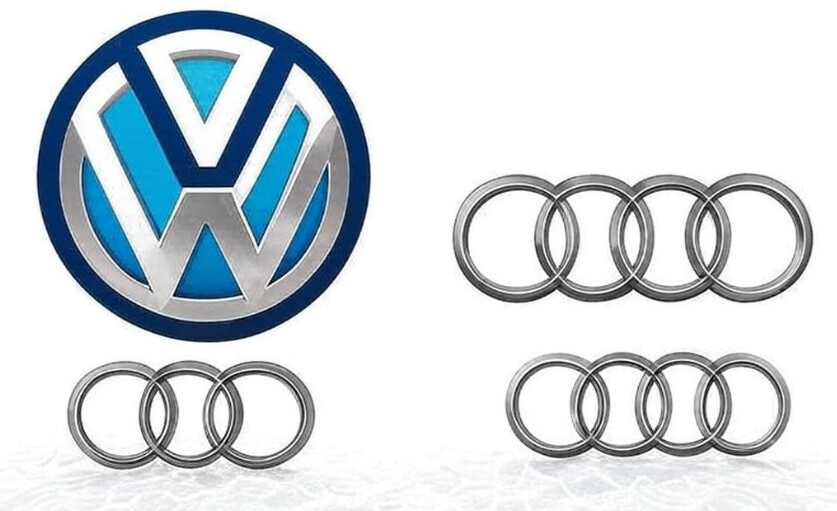
German automotive giant Volkswagen is reportedly exploring the possibility of manufacturing some Audi vehicles within the United States as a strategic maneuver to avoid anticipated high tariffs. This development underscores the significant impact of the former president's protectionist trade policies on the global automotive industry.
Thomas Schmall-von Westerholt, Volkswagen's Chief Technology Officer (CTO) who is currently serving as interim CEO, stated in an interview with the German newspaper Frankfurter Allgemeine Zeitung, that localizing Audi production in the US is one of the options being considered to mitigate the potential impact of automotive tariffs. He further noted that the company is engaged in constructive discussions with the US government regarding this matter.
Volkswagen, being the largest automobile manufacturer in Europe, faces considerable vulnerability to potential increases in US import duties. This is particularly true for its premium brand, Audi, which has a high proportion of its vehicles produced in Europe and then exported to the American market, making it directly susceptible to tariff hikes.
Earlier in April, Volkswagen disclosed that the series of tariff measures being contemplated by the former president were already negatively affecting the company's first-quarter operating profit. At the time, the interim CEO emphasized Volkswagen's commitment to remaining a consistent investor in the United States and a reliable partner, while also announcing a suspension of vehicle deliveries to the US market as a precautionary measure.
Currently, Volkswagen operates a production facility in Tennessee. However, a significant 65% of the Volkswagen vehicles sold in the US are imported from Europe or Mexico. This reliance on imports highlights how the imposition of higher US tariffs on imported cars would pose a direct financial burden on Volkswagen's American operations. Moreover, this situation can be interpreted as a demonstration of the diminished effectiveness of the United States-Mexico-Canada Agreement (USMCA) in preventing such trade barriers within the North American region.
Volkswagen's proposed strategy to produce Audi vehicles in the US offers a potential short-term solution to alleviate tariff pressures. However, analysts suggest that in the long term, this move could catalyze a broader trend of global automotive manufacturers re-evaluating their production footprints and restructuring their supply chains to adapt to evolving trade landscapes and potential protectionist measures. The uncertainty surrounding future trade policies is compelling automakers to seek greater regional self-sufficiency in key markets like the United States.
Expanding Volkswagen’s production in the US to include Audi would necessitate significant investment in retooling existing facilities or establishing new ones. This undertaking would involve assessing the cost-effectiveness of local production compared to the existing export model, considering factors such as labor costs, supply chain logistics for specialized Audi components, and the scale of production required to meet US market demand. Furthermore, Volkswagen would need to navigate complex regulatory frameworks and potential incentives offered by the US government to encourage domestic manufacturing.
The decision by Volkswagen also reflects a growing concern among European automakers regarding the potential resurgence of protectionist trade policies in the United States. The prospect of substantial tariffs on imported vehicles creates an imperative for these companies to explore alternative strategies to maintain their competitiveness in the crucial US market. Local production, while requiring significant upfront investment and operational adjustments, offers a pathway to circumvent tariffs and potentially benefit from a “made in America” advantage.
Beyond Volkswagen's specific case, the broader implications for the global automotive industry are considerable. If major manufacturers like Volkswagen begin to shift production to the US to avoid tariffs, it could lead to a cascading effect, prompting other international automakers to reassess their global production strategies. This could result in a significant reshuffling of automotive production hubs worldwide, with potential consequences for employment, investment flows, and the intricate global supply chains that have characterized the industry for decades.
The situation also raises questions about the future of international trade agreements and the stability of global commerce. The potential erosion of agreements like USMCA, intended to facilitate free trade within North America, underscores the fragility of established trade norms in the face of unilateral protectionist tendencies.
In conclusion, Volkswagen's consideration of producing Audi vehicles in the US represents a proactive response to the potential challenges posed by US tariff policies. While this strategy could offer a near-term solution for the German automaker, it also signals a potentially significant shift in global automotive production strategies, driven by the need to adapt to an evolving and potentially more protectionist international trade environment. The long-term consequences of such shifts could reshape the automotive industry landscape and necessitate a fundamental rethinking of global supply chains and production networks.
[Copyright (c) Global Economic Times. All Rights Reserved.]






























